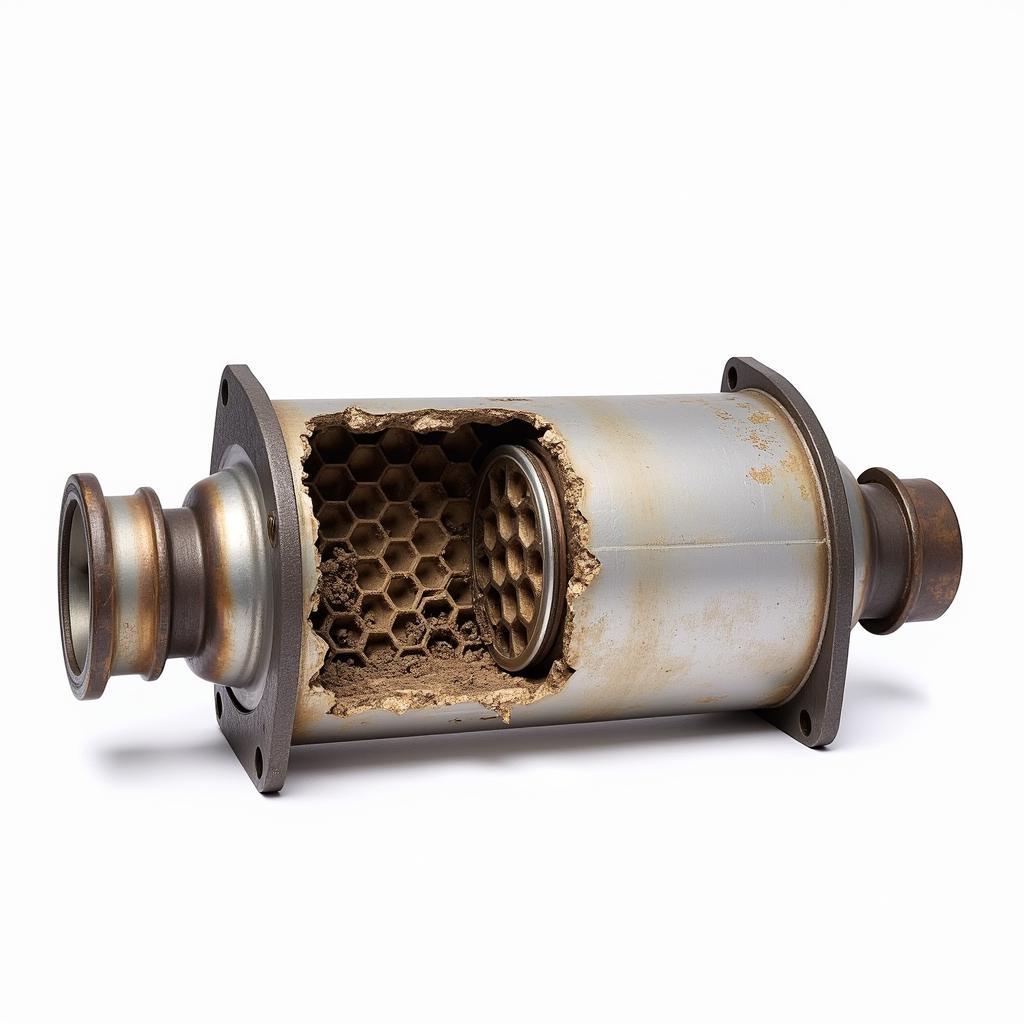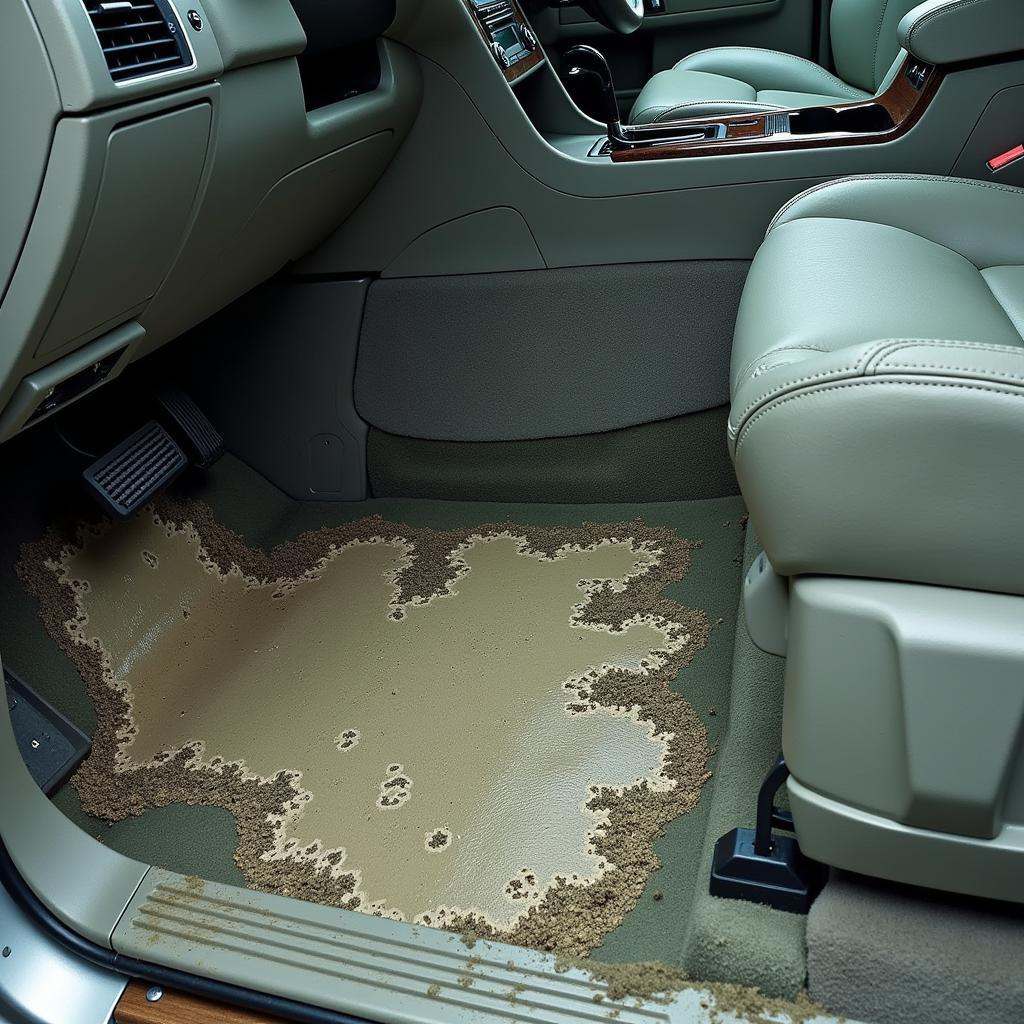A car is more than just a machine; it’s an extension of our personal space. We spend countless hours behind the wheel, and over time, our cars become familiar and comforting. But when a strange smell invades that familiar space, it’s a sign that something’s amiss. Ignoring unusual car smells can lead to further damage and costly repairs down the line. This is where understanding Diagnostic Car Smells becomes crucial.
The Unmistakable Language of Car Smells
Just as our bodies use pain to signal a problem, our cars use smells to communicate issues that might be hidden from plain sight. Each scent can be traced back to a specific system or component, acting as a clue for car owners and mechanics alike. Let’s decode some of the most common diagnostic car smells:
1. The Sweet Scent of Trouble: Coolant Leaks
A sweet, syrupy smell emanating from your car, often compared to maple syrup, is a telltale sign of a coolant leak. Coolant, responsible for regulating your engine’s temperature, contains ethylene glycol, which gives it that distinctive sweet aroma.
Ignoring this sweet smell can lead to overheating, engine damage, and costly repairs. If you notice this smell, it’s crucial to check your coolant levels and inspect for leaks.
2. Burning Rubber: A Sign of Friction and Wear
The acrid smell of burning rubber is hard to miss and usually indicates a problem with your car’s belts, hoses, or tires. It often arises when a belt slips, a hose rubs against a hot engine component, or a tire locks up due to a braking issue.
Don’t ignore this smell; it’s essential to identify and address the source of the burning rubber smell promptly to prevent further damage and potential safety hazards.
3. Rotten Eggs and Exhaust Fumes: A Catalytic Converter Concern
If your car emits a strong odor resembling rotten eggs, especially after refueling, it’s a red flag pointing towards a faulty catalytic converter. The catalytic converter, responsible for reducing harmful emissions, uses precious metals to convert toxic gases into less harmful ones. A malfunctioning converter can release sulfur compounds, resulting in the unpleasant rotten egg smell.
 Cutaway of a Damaged Catalytic Converter: Show a cross-section of a catalytic converter with visible damage, such as a clogged honeycomb structure.
Cutaway of a Damaged Catalytic Converter: Show a cross-section of a catalytic converter with visible damage, such as a clogged honeycomb structure.
Ignoring this smell can impact your car’s performance, fuel efficiency, and contribute to environmental pollution.
4. The Musty Odor of Mold and Mildew: A Water Intrusion Warning
A damp, musty smell inside your car is a clear indication of mold or mildew growth, often caused by a water leak. Common culprits include a clogged sunroof drain, a leaking windshield seal, or damp carpets from spilled liquids.
 Mold Growth on Car Carpet: A close-up image showcasing visible mold growth on a damp car carpet, often found in footwells.
Mold Growth on Car Carpet: A close-up image showcasing visible mold growth on a damp car carpet, often found in footwells.
Mold not only creates an unpleasant odor but can also pose health risks, especially for those with allergies or respiratory issues. Addressing water leaks and eliminating mold growth is crucial for maintaining a healthy and comfortable car interior.
Beyond the Obvious: Other Diagnostic Car Smells
While the aforementioned smells are among the most common, several other scents can provide valuable insights into your car’s health:
- Gasoline Smell: A strong gasoline odor, especially inside the car, can indicate a fuel leak, a problem with the fuel injectors, or a faulty fuel pressure regulator.
- Burning Oil Smell: Often described as a hot or acrid odor, a burning oil smell can signal an oil leak, a worn-out oil filler cap, or a problem with the valve cover gasket.
- Sweet, Burning Smell: While a sweet smell can indicate a coolant leak, a sweet, burning smell might point towards a leaking heater core, which can release coolant into the passenger compartment.
When in Doubt, Seek Professional Car Diagnostic Smell Help
Diagnosing car smells can be tricky, and while some might be easy to identify, others require professional expertise. If you’re unsure about a particular smell or suspect a serious issue, it’s always best to err on the side of caution and seek help from a qualified mechanic.
FAQs: Diagnostic Car Smells
1. Can I drive my car with a coolant leak?
It’s not recommended to drive your car with a coolant leak. Coolant leaks can lead to engine overheating and severe damage. If you notice a sweet smell and suspect a leak, it’s best to pull over immediately and call for roadside assistance.
2. How often should I check my car fluids?
It’s good practice to check your car fluids, including coolant, oil, brake fluid, and power steering fluid, at least once a month. Regular checks can help you identify potential leaks and address them promptly.
3. How can I prevent mold growth in my car?
To prevent mold growth, ensure your car is well-ventilated, especially after cleaning or driving in wet conditions. Address any water leaks promptly, dry wet carpets thoroughly, and consider using a dehumidifier if necessary.
4. Can a bad catalytic converter cause my car to fail emissions testing?
Yes, a faulty catalytic converter can result in increased emissions, leading to a failed emissions test. The catalytic converter plays a crucial role in reducing harmful pollutants, and a malfunctioning one will need replacement.
5. What should I do if I smell gas inside my car?
A gasoline smell inside your car is a serious concern. It’s crucial to roll down your windows for ventilation, avoid smoking or any open flames, and contact a mechanic immediately to diagnose and address the fuel leak.
Don’t Ignore the Warning Signs: Your Nose Knows
Your car’s sense of smell, although unconventional, can be a lifesaver. By paying attention to unusual odors and understanding what they signify, you can identify potential issues early on, saving yourself from costly repairs and ensuring your safety on the road. Remember, a stitch in time saves nine, and in the world of car maintenance, early detection is key to a healthy and long-lasting vehicle. For further car diagnostic resources and information on free car diagnostic checks at Autozone, visit DiagFixPro.
Need help with car diagnostics? Contact us via WhatsApp: +1(641)206-8880 or Email: [email protected] for 24/7 support from our expert team!

Leave a Reply